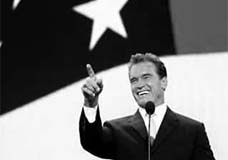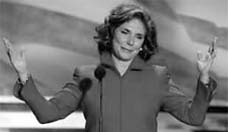
In 1962, John Cort went to the Philippines as a Peace Corps administrator
Generous in youth, same in old age
Wednesday, October 6, 2004
"A man who is not a radical when young lacks a heart; a man who in old age is not a conservative lacks a head." So runs a classic statement often attributed to the 19th century British prime minister Benjamin Disraeli. If he said it, Disraeli was dead wrong about my friend John Cort.
By reason of his qualities of character and intellect, John Cort deserves to be much better known. In a 2003 memoir titled "Dreadful Conversions: The Making of a Catholic Socialist", he reveals himself to be a man dynamic in both youth and old age. Written as he neared 90, it recounts a colorful career full of dramatic events and memorable personalities.
However, his socialism, democratic as it is, does not give him a seller's market in these days of capitalism rampant worldwide. It would not take many hands to count the number of American Catholics willing to be called socialists.
He became a Catholic just after finishing Harvard College in 1935, conversion number one. In the following year, he joined the Catholic Worker in New York City, under the leadership of Dorothy Day, who published a newspaper of the same name, founded a movement centered on justice and nonviolence, and provided food and lodging to people down and out.
After a short stint at the Catholic Worker farm in Pennsylvania, John Cort took up residence in the House of Hospitality, two blocks west of the Bowery, and helped serve daily breakfast to those who joined the breadline. More significantly for his future career, he also helped found the Association of Catholic Trade Unions, an organization that served as base for his efforts to improve the lot of workers.
In 1950, after many more adventures than can be summarized here, Cort moved back to Boston. His work as business agent for the Boston Newspaper Guild has special significance for me. John entered into negotiations on behalf of the 300 members of his union who worked for the Boston Post. My father represented the management of the Post, a newspaper then in trouble.
John remembers my father as a "hard negotiator," not surprising in view of the reverses that the paper was suffering. The Post, at one time the dominant newspaper in New England, succumbed to economic pressures in 1956.
In 1962, Cort went to the Philippines as a Peace Corps administrator; later he headed Massacusetts' anti-poverty agency, and ran the Model Cities program in Lynn. During all this time, he continued his involvement in labor issues and the struggle for racial justice, both nationally and locally. Moving to Roxbury in the late 1960s, he and his wife acted to promote peace and justice there and elsewhere in a troubled city.
The father of 10 children, John Cort has good reason to value family life. As an experienced journalist, he often writes for Commonweal, most recently on the subject of funerals. He has plans for his own and hopes to be waked in his parish church in Nahant. But he is not yet ready for that event: There is too much work still to be done.
Some of the work concerns the reform of the Catholic Church. John constantly tries to get clergy and fellow laity to take leadership in that enterprise. He still takes inspiration from Pope John XXIII, whose willingness to enter upon drastic change in old age brought about radical change in the church.
Cort remains a Vatican II Catholic, holding fast to the promise of that great church council in the middle 1960s. Though the council's innovations favoring shared power have faded, he still believes that more democracy in the church is necessary. For that reason he supports Voice of the Faithful, the lay group working for reform but laboring under resistance from ecclesiastical authority.
In what he calls his "second conversion," Cort became a socialist formally in 1975 when he was 62 years of age. It remains surprising that it took so long, because he claims that "any Catholic who takes the papal encyclicals [letters from the Pope on social issues] seriously should logically be a socialist."
In 1977, Cort began a period of scholarship based at Weston Jesuit School of Theology in Cambridge. There he did research culminating in his 1988 book "Christian Socialism: An Informal History."
# For him, democratic socialism means a system of economy that "places first the satisfaction of common human needs namely food, clothing, shelter, health, education, respect, and the good jobs at decent wages that make possible all these good and necessary things."
As should be clear, John is a good ad for longevity. The vigor in his thinking and his robust physique make long life look good. He would freely admit the good fortune he has had - marrying well looms large among those gifts - being blessed with good health in later life, a fine education, and enough financial resources (despite his voluntary poverty as a young man).
Back to Disraeli or whomever, I believe he would have had the good sense to jettison his mot if he had known John Cort.
Richard Griffin of Cambridge is a regularly featured columnist in Community Newspaper Company publications. He can reached by e-mail at rbgriff180@aol.com or by calling 617-661-0710.



